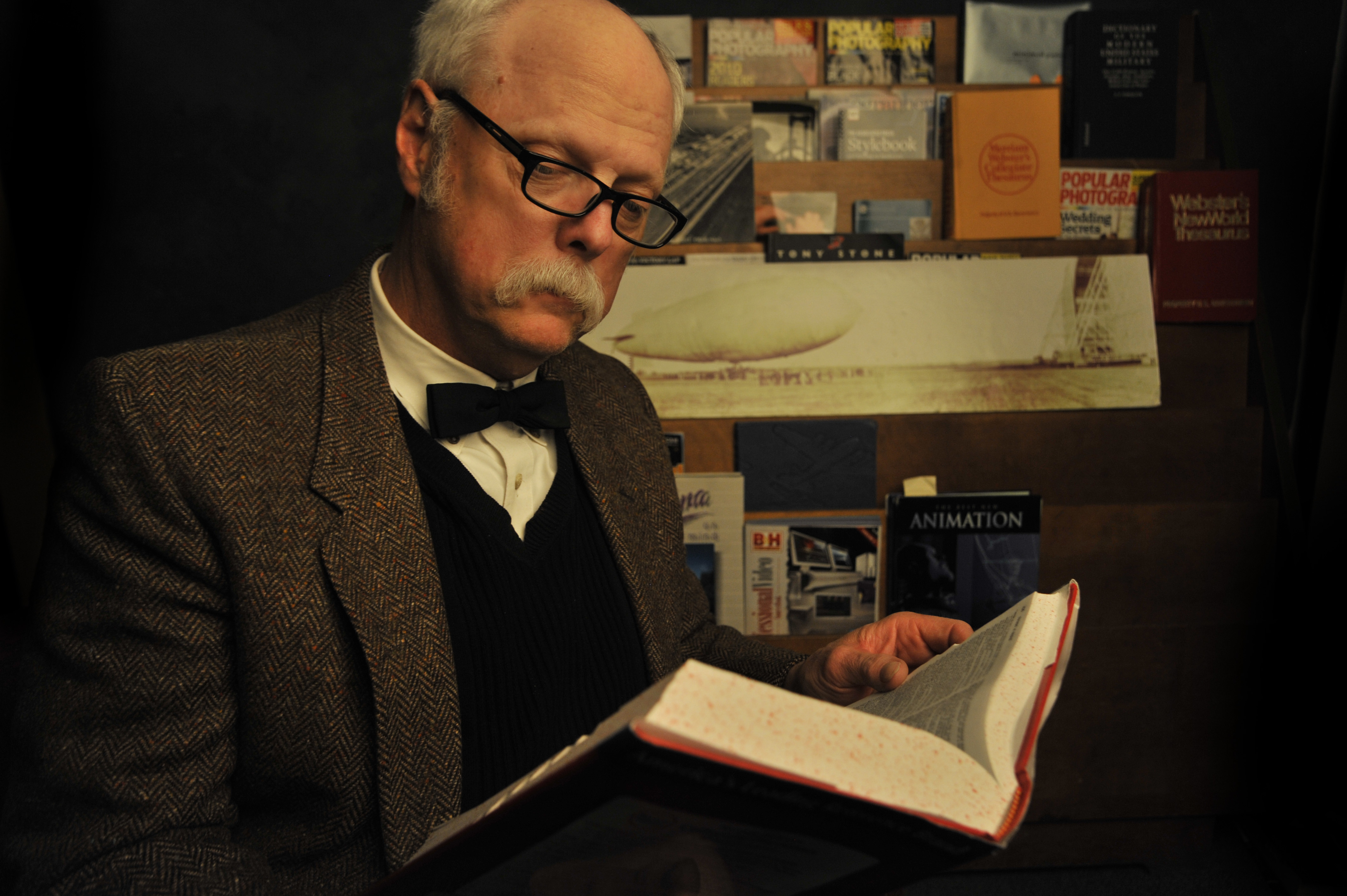Doris Kearns Goodwin: A Leading Voice In American History
When we think about someone who truly brings the past to life, who can make historical figures feel like people we know, the name Doris Kearns Goodwin often comes to mind. She is, you know, a very celebrated historian, someone who has spent decades meticulously studying and writing about American presidents and their times. Her work has, in a way, helped countless readers connect with pivotal moments and figures from our nation's story, offering fresh looks at events that shaped us.
Her contributions go beyond simply recounting facts; she really gets into the motivations and personalities of those she studies. It's almost like she helps us understand the human side of history, which is a big part of what makes her writing so compelling. She has, you might say, carved out a unique place for herself by making complex historical periods accessible and engaging for a wide audience.
This article will take a closer look at Doris Kearns Goodwin, exploring her remarkable journey as a historian. We will, in some respects, consider what makes her work so impactful, from her research methods to her storytelling abilities, and see how she embodies the very essence of what a historian does, as we understand it.
Table of Contents
- Biography: The Life and Work of Doris Kearns Goodwin
- Early Life and Academic Beginnings
- From White House Fellow to Presidential Historian
- The Craft of Historical Storytelling
- Acclaimed Works and Their Enduring Impact
- A Lasting Legacy in Historical Scholarship
- Frequently Asked Questions About Doris Kearns Goodwin
Biography: The Life and Work of Doris Kearns Goodwin
Doris Helen Kearns Goodwin is, arguably, one of the most respected figures in contemporary American historical writing. Her path to becoming a renowned presidential historian is, in a way, as interesting as the stories she tells. She has a remarkable ability to transform vast amounts of historical data into narratives that are both educational and deeply personal.
Personal Details and Bio Data
| Full Name | Doris Helen Kearns Goodwin |
| Born | January 19, 1943 (age 81 as of 2024) |
| Birthplace | Brooklyn, New York, U.S. |
| Education | Colby College (B.A.), Harvard University (Ph.D.) |
| Occupation | Historian, Author, Political Commentator |
| Spouse | Richard N. Goodwin (m. 1975; d. 2017) |
| Notable Awards | Pulitzer Prize for History (1995), Lincoln Prize (2006) |
Early Life and Academic Beginnings
Doris Kearns Goodwin's interest in history, it seems, began at a very young age. Growing up in Rockville Centre, New York, she developed a passion for storytelling, especially about the past, influenced by her father who would recount baseball games to her. She went on to attend Colby College, where she studied government, and later pursued her graduate studies at Harvard University. Her academic journey, you know, laid a solid foundation for her future work as a historian, providing her with the critical thinking and research skills that are so important for someone who studies history.
From White House Fellow to Presidential Historian
Her career took a truly unique turn when she was selected as a White House Fellow during Lyndon B. Johnson's presidency. This experience, in fact, gave her an unparalleled look at the inner workings of presidential decision-making. After Johnson left office, he invited her to help him write his memoirs. This direct engagement with a former president, learning about his life and thoughts firsthand, was, you know, a formative experience that deeply influenced her approach to history. It showed her the value of personal accounts and direct engagement with sources, much like how a historian "researches, analyzes, interprets, and writes about the past by studying historical documents and sources," as our text describes.
This period of her life was, in a way, a masterclass in understanding the presidency from the inside. It helped her grasp the complexities of leadership and the personal burdens that come with such a role. Her first major book, "Lyndon Johnson and the American Dream," published in 1976, grew directly from this close collaboration. It was, arguably, a powerful start to a career that would redefine how many people viewed historical biography.
The Craft of Historical Storytelling
What makes Doris Kearns Goodwin stand out as a historian is, in some respects, her exceptional ability to weave together rigorous research with compelling narratives. She is, you know, a master of what we call "historiography," which is, as our source material puts it, "the writing of history, especially the writing of history based on the critical examination of sources, the selection of particular details from the authentic materials in those sources, and the synthesis of those details into a narrative." She does not just present facts; she crafts stories that resonate with readers.
Her process involves, quite literally, immersing herself in the lives of her subjects. This means spending countless hours sifting through archival documents, personal letters, diaries, and newspaper accounts. She often explains how she tries to "get inside the heads" of the historical figures, to understand their motivations and the context of their decisions. This deep, almost empathetic, approach is, you might say, a hallmark of her work, making her subjects feel incredibly human.
She also has a particular skill for identifying the "authentic materials" that truly illuminate a character or an event. This involves a lot of careful selection, picking out the details that will bring a story to life without overwhelming the reader. Her books, you know, manage to be both thoroughly researched and incredibly readable, a balance that is often difficult for historians to achieve. It's a testament to her dedication to both accuracy and engaging storytelling, something that really defines what a "historian is a person who specializes in the study of history, and who writes books and articles about it," as our text notes.
Acclaimed Works and Their Enduring Impact
Doris Kearns Goodwin's bibliography is, in a way, filled with books that have become staples for anyone interested in American history. Her works have garnered numerous awards and have been adapted into popular films, further extending their reach. One of her most celebrated books is, in fact, "No Ordinary Time: Franklin and Eleanor Roosevelt: The Home Front in World War II," which earned her the Pulitzer Prize for History in 1995. This book, you know, offered a nuanced look at the Roosevelts' partnership during a pivotal period, showing how their personal lives intertwined with global events.
Another monumental achievement is "Team of Rivals: The Political Genius of Abraham Lincoln," published in 2005. This book, you know, explores how Lincoln brought his former political adversaries into his cabinet, a strategy that proved crucial during the Civil War. It received widespread critical praise and was a major influence on Steven Spielberg's film "Lincoln." This kind of recognition, where a historian's work influences popular culture, is, you know, a pretty big deal. It shows how historical writing can shape our collective understanding, much like how "the writing of history... based on the critical examination of sources... and the synthesis of those details into a narrative" can profoundly impact our view of the past.
More recently, her book "Leadership: In Turbulent Times" (2018) examined the leadership qualities of Lincoln, Theodore Roosevelt, Franklin D. Roosevelt, and Lyndon B. Johnson. This work, you might say, distills lessons from their experiences, making history relevant for contemporary challenges. Her ability to connect the past to the present is, in some respects, one of her greatest strengths, making her a very significant voice among "eminent scholars of U.S. history," as our source material mentions.
A Lasting Legacy in Historical Scholarship
Doris Kearns Goodwin's contribution to historical scholarship is, in a way, undeniable. She has, quite literally, made American history more accessible and more compelling for millions of readers. Her work reminds us that history is not just a collection of dates and names, but a rich "continuous, methodical narrative and research of past events as relating to the human race," as our text describes. She has demonstrated, time and again, the value of deep research combined with an engaging writing style.
She is, too, a prime example of a "formidable expert in her chosen field," as our text notes when discussing famous women historians. Her influence extends beyond her books; she is a frequent commentator on television, offering historical context to current events. This role, you know, helps bridge the gap between academic history and public discourse, showing how the lessons of the past can inform the present. Her legacy will, in some respects, continue to inspire future generations of historians and readers alike to explore the complexities of our shared past.
Frequently Asked Questions About Doris Kearns Goodwin
People often have questions about Doris Kearns Goodwin and her work. Here are some common ones, addressing what people are curious about.
What is Doris Kearns Goodwin most famous for?
Doris Kearns Goodwin is, in a way, most famous for her award-winning biographies of U.S. presidents, including Abraham Lincoln, Franklin D. Roosevelt, Theodore Roosevelt, and Lyndon B. Johnson. Her ability to tell engaging stories about these figures, often based on very extensive research, has made her books incredibly popular. "Team of Rivals" and "No Ordinary Time" are, arguably, her most celebrated works, the latter earning her a Pulitzer Prize.
How does Doris Kearns Goodwin research her books?
She, you know, engages in incredibly thorough research, which is a hallmark of what a historian does. This involves delving into vast archives of historical documents, including presidential papers, private letters, diaries, and contemporary newspaper accounts. She often talks about how she tries to immerse herself in the period, sometimes even visiting the homes and landscapes connected to her subjects. This deep immersion helps her to "examine and interpret historical documents and sources," as our text says about historian duties.
What awards has Doris Kearns Goodwin won?
Doris Kearns Goodwin has, in fact, received numerous prestigious awards for her historical writing. Her book "No Ordinary Time: Franklin and Eleanor Roosevelt: The Home Front in World War II" won the Pulitzer Prize for History in 1995. She also received the Lincoln Prize for "Team of Rivals: The Political Genius of Abraham Lincoln" in 2006. These awards, you know, highlight the significant impact and scholarly merit of her contributions to American history.
Further Exploration
To learn more about the fascinating world of historians and their work, you might want to explore how someone becomes a historian. You can, for instance, learn more about historian jobs on our site, which talks about the tasks and duties involved. Additionally, if you are interested in the broader field of historical study, you could, you know, explore various aspects of history writing.
For more detailed information on Doris Kearns Goodwin's specific works and public appearances, you could, you know, visit her official website, which is a very good resource: Doris Kearns Goodwin Official Website.

Historiador - Profissões - InfoEscola

Historian Meaning Universal Basic Income - Definition and History

How To Become an Historian | GCU Blog